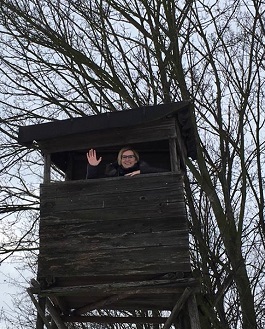
The Chamber approved an amendment aimed at accelerating the approval of construction projects
 |
| photo: FCB Karla Šlechtová |
The minister indicated that if obtaining a building permit currently takes ten years, this time could potentially be reduced to five years as a result of the amendment. The Czech Chamber of Commerce advocates for the quickest possible approval of the law, considering the current situation unsustainable.
The newly introduced so-called coordinated permitting process will merge the currently separate zoning and building procedures, as well as the so-called EIA. Such construction will be both located and approved with a single official decision. However, the merged procedure will not be mandatory; the investor will be able to choose whether to take advantage of it or continue according to the existing legal regulations. Merging will be possible, for example, for the construction of railways, roads, or highways.
In the first phase, more than 300 amendments were presented in the Chamber of Deputies regarding the amendment, which alters more than 40 other laws. Today, lawmakers went through more than 70 votes. The law was supported by 117 deputies across parties, while members of the ODS, TOP 09, and most of Úsvit abstained. Three deputies from ČSSD even voted against it.
Lawmakers rejected an amendment by Karel Raise (ANO), who wanted to regulate the construction of certain religious buildings in the building act. This would primarily concern mosques. According to his proposal, citizens should decide on them in a local referendum. The Ministry for Regional Development deemed his proposal unconstitutional.
The Chamber also rejected an amendment from a group of deputies led by Ladislav Okleštěk (ANO) that introduced the institution of preliminary possession into the legislation. For transport constructions, where it is necessary to expropriate the required land, the office could allow preliminary possession of the expropriated land, according to him. It would thus be possible to start construction on it even before expropriation. Minister Šlechtová warned against introducing this institution, as it could lead to legal disputes over compensation.
Despite the minister's significant disapproval, deputies extended the deadline for updating zoning plans made before 2007. The current deadline of 2020 has been extended to 2022. They also approved a proposal from the public administration committee that aims to reduce the cost of building wine cellars. While currently, an applicant can pay a total of 30,000 crowns for the decision on the location of the construction and for the building permit, they could now pay only thousands of crowns.
Another proposal by Okleštěk succeeded, establishing that in a lawsuit against a decision that places or approves the construction of transportation infrastructure according to the law on speeding up infrastructure construction, the appropriate Regional Court in Ostrava will have jurisdiction. A specialized senate will lead proceedings in these matters.
Deputies approved a proposal by Jaroslav Foldyna (ČSSD) regarding the participation of the public and associations in the permitting processes under the nature and landscape protection law. Foldyna argued that this would ease the burden on investors. According to this proposal, the expression of associations will not be subject to administrative proceedings, but only to proceedings under this law. "Basically, this means that the public and these associations can certainly participate in zoning plans, in the EIA law, the concerned public is not touched, and also in building permits," Minister Šlechtová told ČTK.
Lawmakers removed a provision from the building act that grants the right of participation to persons designated by special laws, primarily concerning conservation associations. This was criticized, for example, by the Green Circle association, which brings together ecological organizations. The Green Circle argues that excluding the public from permitting constructions will not speed up the process. However, according to the Ministry for Regional Development, this proposal will change nothing in practice, as associations will still have the right to participate based on other laws.
The English translation is powered by AI tool. Switch to Czech to view the original text source.
0 comments
add comment
Related articles
0
13.07.2017 | Zeman signed the construction law, which will speed up the approval process
0
28.06.2017 | The Chamber confirmed its version of the amendment to the construction code
1
17.05.2017 | <content>Ombudsman criticizes the proposed amendment to the Building Act</content>
0
04.04.2017 | <Hospodářská komora prosazuje schválení novely stavebního zákona> translates to <The Chamber of Commerce advocates for the approval of the amendment to the building law>
0
14.03.2017 | The coalition experts will still negotiate about the construction amendment
0
07.03.2017 | Babiš: It is nonsense for five ministries to comment on construction projects
0
16.01.2017 | Šlechtová: I will propose to withdraw the non-functional amendment to the building act
0
16.11.2016 | The committee suspended the discussion of the amendment to the building act
0
21.09.2016 | The government today approved an amendment to the building law
0
13.09.2016 | The government today suspended the discussion of the amendment to the building Act
0
18.04.2007 | The ministry wants to amend the new construction law
2
10.04.2006 | Klaus signed the construction law, which will ease the process for builders












